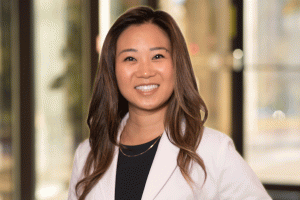What are the 3 Most Common Eye Diseases?

Your eyes are not only the windows to your soul but also vital organs that allow you to experience the world around you. Taking care of your eyesight is crucial, and understanding common eye diseases can help you recognize symptoms early and seek appropriate treatment. In this article, we will explore the three most prevalent eye diseases, their symptoms, available treatments, and preventive measures to ensure optimal ocular health.
Cataracts: Clouding Your Vision
Cataracts affect millions of people worldwide and are one of the leading causes of vision impairment. This condition occurs when the lens of your eye becomes cloudy, resulting in blurred or hazy vision. While cataracts are commonly associated with aging, they can also develop due to other factors such as trauma, radiation exposure, or certain medications.
Symptoms
The symptoms of cataracts can vary but often include:
- Blurred or cloudy vision
- Sensitivity to light
- Difficulty seeing at night
- Fading or yellowing of colors
- Double vision in one eye
Treatment Options
If cataracts begin to interfere with your daily activities or significantly impact your vision, surgical intervention may be necessary. Cataract surgery involves removing the clouded lens and replacing it with an artificial intraocular lens (IOL). This procedure is highly successful and usually performed on an outpatient basis.
Glaucoma: The Silent Thief of Sight
Glaucoma is a progressive eye disease that damages the optic nerve over time. It often develops due to increased pressure within the eye (intraocular pressure), which can lead to irreversible vision loss if left untreated. Known as "the silent thief of sight," glaucoma typically has no noticeable symptoms until significant damage has occurred.
Symptoms
While glaucoma may not present any early warning signs, it is essential to be aware of potential indicators such as:
- Gradual loss of peripheral vision
- Tunnel vision
- Blurred or hazy vision
- Severe eye pain or headaches
- Nausea or vomiting
Treatment Options
Although there is no cure for glaucoma, early detection and treatment can help slow its progression and preserve your remaining vision. Treatment options may include:
- Medicated eye drops to reduce intraocular pressure
- Oral medications in combination with eye drops
- Laser therapy to improve fluid drainage
- Surgical procedures to create new drainage channels or implant drainage devices
Age-related Macular Degeneration (AMD): Dimming the Lights on Central Vision
Age-related macular degeneration (AMD) affects the macula, a small portion of the retina responsible for central vision. It is one of the leading causes of severe vision loss in people over 60 years old. AMD can occur in two forms: dry AMD, which progresses slowly, and wet AMD, which advances rapidly.
Symptoms
The symptoms of AMD may include:
- Blurry or distorted central vision
- Difficulty recognizing faces or reading fine print
- Dark spots or empty spaces in your field of view
Treatment Options
While there is no cure for AMD, several treatment options can help manage the condition and slow its progression. These may include:
- Nutritional supplements specifically formulated for AMD management
- Anti-VEGF therapy to inhibit abnormal blood vessel growth in wet AMD cases
- Photodynamic therapy to selectively destroy abnormal blood vessels
Protecting Your Precious Sight
By being aware of the three most common eye diseases—cataracts, glaucoma, and age-related macular degeneration—you empower yourself to take better care of your eyesight. Regular comprehensive eye exams are crucial for early detection and prompt intervention if necessary. Remember to protect your eyes from harmful UV rays by wearing sunglasses, maintain a healthy lifestyle that includes a balanced diet and regular exercise, and promptly seek professional advice if you experience any changes in your vision. Prioritizing your ocular health today ensures a brighter and clearer future for your eyesight.
TESTIMONIAL

Everything was explained. Everyone was helpful, cheerful, and competent. Dr. Paré was, as always, competent, helpful, and patient.

“My visit was awesome. The tech was fantastic and of course we love Dr. Hewitt.”

Dr. Park has my full faith and confidence for me to recommend her to whomever may read this. I am pleased she has joined the practice. Her professional and exceptional caring will be evident in seconds to her patients meeting her.
OFFICE HOURS
| Week Days | 8:00 - 4:00 |
| Saturday | Closed |
| Sunday | Closed |

